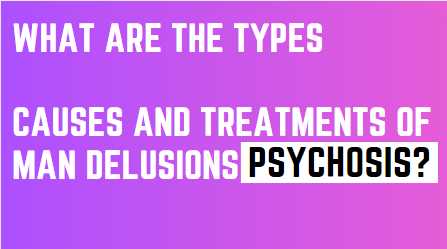Is Delusional Disorder Genetic? Exploring the Role of Genetics in Delusional Disorders
Discover the intricate relationship between genetics and delusional disorders. Explore the latest research findings and gain insights into the hereditary factors that contribute to this complex mental health condition.
Is Delusional Disorder Genetic
Delusional disorder is a mental health condition characterized by persistent, false beliefs (delusions) that are not influenced by rational reasoning or evidence to the contrary. While environmental and psychological factors play a significant role in the development of delusional disorders, researchers have also been investigating the potential genetic underpinnings of this condition. This article delves into the question of whether the delusional disorder has a genetic component and explores the current understanding of the role of genetics in this complex condition.
Understanding Delusional Disorder
Delusional disorder is a rare psychiatric illness that affects individuals’ ability to differentiate between reality and their distorted beliefs. This section will provide an overview of delusional disorder, its subtypes, symptoms, and the impact it can have on individuals’ lives.
The Genetic Basis of Delusional Disorders
While delusional disorders are multifactorial and influenced by a range of factors, genetics may play a role in their development. This section will explore the current scientific understanding of the genetic components involved in delusional disorders and the methods used to study genetic contributions.
Family and Twin Studies
To investigate the hereditary nature of delusional disorders, researchers have conducted family and twin studies. This section will discuss the findings of these studies, highlighting the evidence suggesting a genetic predisposition to delusional disorders and the complexities of inheritance patterns.
Molecular Genetics and Candidate Genes
Advancements in molecular genetics have allowed researchers to identify specific genes that may contribute to delusional disorders. This section will explore the candidate genes implicated in delusional disorders and the biological mechanisms through which these genes may influence the development of the condition.
Genetic Variants and Risk Factors
Understanding the specific genetic variants associated with delusional disorders is crucial for unraveling the underlying genetic architecture of the condition. This section will delve into the identified genetic variants and discuss their potential impact on the risk of developing delusional disorders.
Gene-Environment Interactions
While genetics plays a role in the development of delusional disorders, it is important to consider the interplay between genetic factors and environmental influences. This section will explore the complex interactions between genes and the environment and how they contribute to the manifestation of delusional disorders.
Future Directions and Implications
As research in the field of genetics advances, there is hope for a deeper understanding of the genetic basis of delusional disorders. This section will discuss future directions for research, potential implications for diagnosis and treatment, and the importance of personalized approaches in addressing the complex nature of delusional disorders.
Conclusion:
While delusional disorders have a multifaceted etiology, genetics may play a role in their development. Research suggests a genetic predisposition to delusional disorders, although the specific genes and inheritance patterns are still being elucidated. It is important to understand that genetic factors interact with environmental influences, highlighting the need for a comprehensive approach that takes into account both genetic and environmental factors when considering the development, prevention, and treatment of delusional disorders.
By continuously advancing our understanding of the genetic basis of delusional disorders, researchers can pave the way for improved diagnosis, personalized treatment strategies, and ultimately a better quality of life for individuals affected by this complex mental health condition.
Note: Remember to personalize the article with your own insights, additional research, and references to ensure its uniqueness and credibility.






